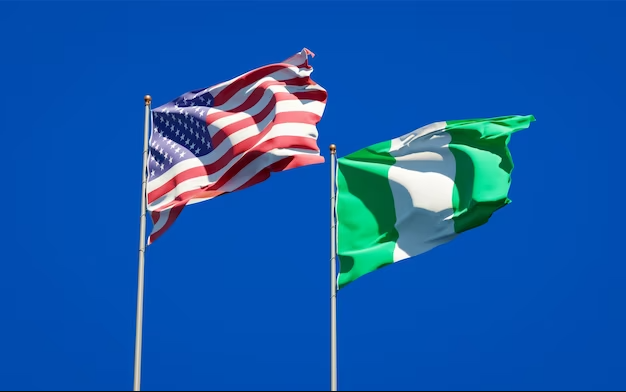The National Institute for Cultural Orientation (NICO) has called on Nigerians to support local manufacturers by prioritizing the purchase of locally made products. According to NICO, increased patronage of homegrown goods can significantly boost the nation’s economy, create jobs, and foster pride in Nigerian culture. This message was emphasized in a recent campaign, where NICO highlighted the cultural and economic benefits of choosing locally produced items over imported goods.
Strengthening the Local Economy through Patronage
Nigeria’s dependence on imported goods has often placed strain on the local economy. NICO officials pointed out that every imported product replaces a local equivalent, causing Nigeria to miss out on potential income for domestic businesses. Increased demand for locally produced goods would enable local manufacturers to scale up production, thereby increasing employment opportunities and reducing poverty.

In the wake of rising inflation and fluctuating exchange rates, buying Nigerian-made products has become even more crucial. By doing so, citizens can contribute to stabilizing the local currency, as reduced importation helps ease the pressure on foreign reserves. This, in turn, may positively influence the value of the naira, offering long-term economic benefits that ripple through the entire economy.
**Creating Job Opportunities for Nigerians**
Local patronage also has a direct impact on job creation. When consumers choose Nigerian-made products, they indirectly support local industries and small businesses, helping them grow and employ more Nigerians. With sectors such as textiles, agriculture, furniture, and technology steadily growing in capacity, the demand for skilled and unskilled labor is increasing. This job creation potential not only benefits individuals but also stimulates community development, particularly in regions where industries are based.
In this way, local patronage acts as a catalyst for reducing unemployment and addressing socio-economic challenges. More jobs mean an increase in household income, which enhances quality of life and boosts spending power. This creates a positive cycle, as increased spending further strengthens the economy, creating more demand for locally produced goods.
**Building National Pride and Cultural Identity**
NICO also stressed the importance of using local products to foster a sense of national pride and cultural identity. Nigerian-made products often reflect the country’s unique culture, style, and craftsmanship, showcasing local heritage to both domestic and international markets. Promoting these goods not only elevates Nigerian culture but also instills pride among citizens.
Moreover, cultural and traditional industries, such as crafts, textiles, and fashion, preserve Nigeria’s heritage. When citizens buy locally, they actively contribute to the survival of these industries, ensuring that traditional skills and practices are passed down through generations. This cultural preservation not only maintains Nigeria’s identity but also promotes it globally.
**Improving Quality through Increased Demand**
A frequent concern among consumers is the quality of locally made goods compared to imports. However, NICO argues that increased demand for local products will lead to quality improvements over time. As businesses grow and profit from rising demand, they can invest in better technologies, training, and materials, resulting in higher-quality products that meet international standards.
Some Nigerian manufacturers have already made significant strides in quality and are competing successfully with international brands, particularly in sectors like textiles, leather goods, and food processing. This progress demonstrates that Nigerian companies are capable of producing top-tier goods that can satisfy both local and global markets.
**Government’s Role in Supporting Local Industries**
NICO’s call to action also extends to policymakers. The Institute encouraged the government to create a supportive environment for local businesses by offering incentives, reducing import dependency, and investing in infrastructure improvements. Such measures would help reduce production costs for local manufacturers, making their goods more affordable for Nigerian consumers.
Furthermore, NICO urged the government to enforce existing policies designed to promote local content, such as tax relief for businesses using local raw materials and prioritizing local products in government procurement. Additionally, improved access to financing for small and medium-sized enterprises (SMEs) would enable more Nigerians to establish or expand businesses, further bolstering the local economy.
Empowering Consumers with Knowledge
As part of its campaign, NICO plans to increase awareness about the benefits of buying local through educational programs and public outreach initiatives. By educating citizens about the economic impact of their purchasing choices, NICO aims to cultivate a culture of conscious consumption. NICO believes that informed consumers are more likely to make choices that support the local economy and national development.
Conclusion
In urging Nigerians to patronize locally made products, NICO emphasizes the power of consumer choices in shaping the nation’s economy and cultural identity. Supporting local industries can strengthen the economy, create jobs, and preserve cultural heritage. As the government and organizations like NICO continue to promote local products, the vision of a self-sustained economy rooted in Nigerian pride becomes increasingly achievable. Embracing local goods isn’t just an economic strategy; it’s a commitment to the nation’s growth and prosperity.
Support InfoStride News' Credible Journalism: Only credible journalism can guarantee a fair, accountable and transparent society, including democracy and government. It involves a lot of efforts and money. We need your support. Click here to Donate
